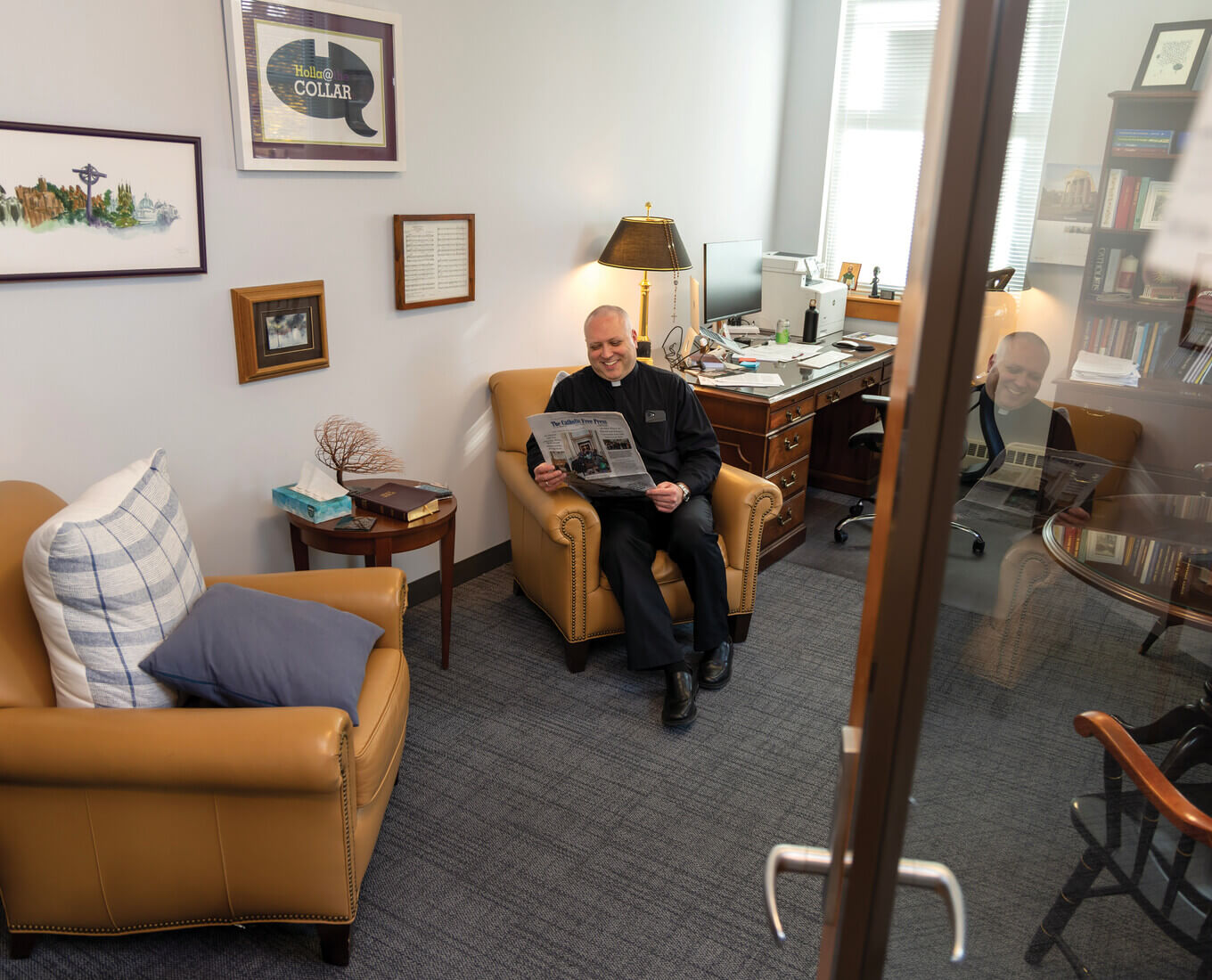Zoe Yanco ’25 had serious reservations about engaging with artificial intelligence.
What if it were addictive? That is, what if she started using AI and couldn’t stop? What if it stole her ability to think critically and independently? Where was the line between learning new technology and flat-out cheating? Yanco was intimidated and overwhelmed at the thought of using ChatGPT or its Google counterpart, Gemini.
In fall 2024, the sociology major took the course Social Class and Power, taught by Jeff Dixon, professor of sociology. In that seminar, he touched on AI literacy and how it might be deployed in the workplace. Yanco, an education minor, aspires to be a school social worker or teacher in an urban setting. The course material — and Yanco’s independent reading about AI and education — prompted other serious questions: Would AI exacerbate issues of bias and inequity? Would it harm students' ability to form meaningful relationships? Would it make teachers obsolete?
“I knew I wanted to delve deeper into a thoughtful examination of AI,” Yanco said. “I was eager to explore how AI intersects with social life and its broader implications on issues of equity and ethics.”
So, the senior enrolled in Dixon’s spring 2025 seminar, Artificial Intelligence (AI), Social Life and Society.
In the course, students have reviewed and debated AI’s use in scenarios traversing personal, professional and public experience, and in sectors, including education, health care and the legal system. They have weighed the pros and cons of AI companions as an antidote to loneliness and whether artificial intelligence might lessen or eliminate educational disparities in poor or otherwise under-resourced communities. They have examined the technology in relation to issues of privacy, bias, employment screening and copyright infringement. They have presented case studies and written papers that delve deeply into theoretical, ethical and policy debates on its use.
Dixon, who studies immigration, worker insecurity, politics and neoliberalism, among other subjects, is well acquainted with Yanco’s feelings of apprehension and curiosity. Ambivalence fuels his interest in AI, too. Dixon serves on the College’s Institutional Review of Artificial Intelligence Task Force, a large group of faculty and administrators considering the potential for AI and other technologies to be integrated into institutional practices.

